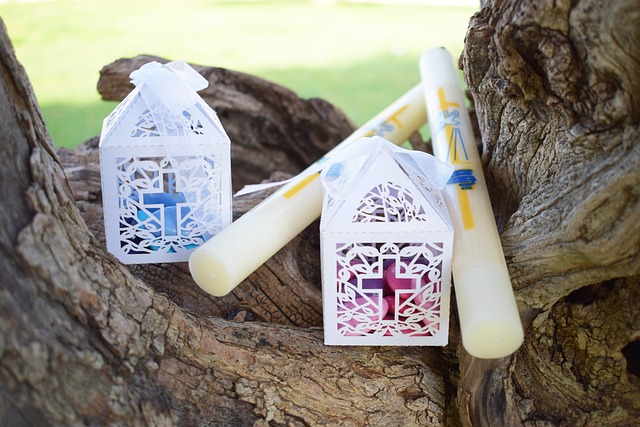Confirmation is a sacrament in the Catholic Church in which individuals are sealed with the gift of the Holy Spirit and are strengthened in their faith. It is typically received after Baptism and Eucharist, completing the sacraments of initiation.
Table of Contents
Sacrament of Confirmation Explained
Have you ever wondered what exactly happens during the sacrament of Confirmation in the Catholic Church? If so, you’re not alone. Confirmation is a significant milestone in the life of a Catholic, but many people may not fully understand its meaning and importance. In this article, we will explore what Confirmation is all about and why it holds such a special place in the hearts of Catholics around the world.
Confirmation is one of the seven sacraments of the Catholic Church, along with Baptism, Eucharist, Reconciliation, Anointing of the Sick, Holy Orders, and Matrimony. It is often referred to as the sacrament of Christian maturity, as it is seen as the completion of the grace received in Baptism. In Confirmation, the individual is sealed with the gift of the Holy Spirit and strengthened in their faith.
The sacrament of Confirmation is typically administered by a bishop, although in some cases a priest may be delegated to perform the ceremony. During the rite of Confirmation, the individual being confirmed is anointed with chrism oil, which is a mixture of olive oil and balsam. This anointing symbolizes the sealing of the Holy Spirit and the individual’s commitment to living out their faith in a more mature and intentional way.
Confirmation is often received during adolescence, as it is seen as a time when individuals are beginning to take ownership of their faith and make it their own. However, Confirmation can be received at any age, as long as the individual has been properly prepared and is ready to make a commitment to their faith.
One of the key aspects of Confirmation is the renewal of baptismal promises. During the ceremony, the individual being confirmed is asked to reject sin and profess their faith in God, Jesus Christ, and the Holy Spirit. This renewal of promises is a powerful reminder of the commitment that the individual is making to live out their faith in a more intentional way.
Confirmation is also a time for the individual to receive the gifts of the Holy Spirit. These gifts, which include wisdom, understanding, counsel, fortitude, knowledge, piety, and fear of the Lord, are meant to help the individual live out their faith in a more authentic and meaningful way. By receiving these gifts, the individual is empowered to be a witness to their faith in the world.
In addition to receiving the gifts of the Holy Spirit, Confirmation is also a time for the individual to be strengthened in their relationship with the Church. Through Confirmation, the individual becomes a full member of the Church and is called to participate more fully in the life of the community. This includes attending Mass regularly, receiving the sacraments, and serving others in need.
Overall, Confirmation is a powerful sacrament that marks a significant moment in the life of a Catholic. It is a time for the individual to deepen their relationship with God, receive the gifts of the Holy Spirit, and commit to living out their faith in a more intentional way. Whether received during adolescence or later in life, Confirmation is a time for the individual to embrace their faith and become a more active member of the Church.
Importance of Confirmation in Catholic Faith
Confirmation is a significant sacrament in the Catholic Church, often seen as a rite of passage for young Catholics. It is a moment when individuals reaffirm their faith and commitment to the Church, receiving the gifts of the Holy Spirit to help guide them in their spiritual journey. The importance of Confirmation in the Catholic faith cannot be overstated, as it plays a crucial role in deepening one’s relationship with God and the Church.
For Catholics, Confirmation is a sacrament of initiation, along with Baptism and Eucharist. It is seen as completing the grace of Baptism, strengthening the individual’s bond with the Church and empowering them to live out their faith in the world. Through Confirmation, Catholics are sealed with the gift of the Holy Spirit, equipping them with the courage and wisdom to bear witness to Christ in their daily lives.
Confirmation is a personal decision that each individual must make for themselves. It is a moment when one takes ownership of their faith and commits to living as a disciple of Christ. This act of reaffirming one’s faith is a powerful expression of devotion and dedication to God, the Church, and the community of believers.
The sacrament of Confirmation is typically administered by a bishop, who lays hands on the individual and anoints them with chrism oil. This anointing symbolizes the sealing of the Holy Spirit within the individual, marking them as a fully initiated member of the Church. The bishop then offers a prayer for the individual, invoking the gifts of the Holy Spirit to guide and strengthen them in their faith journey.
Confirmation is not just a one-time event but a lifelong process of growth and maturation in the faith. It is a reminder that the Holy Spirit is always present and active in our lives, guiding us towards greater holiness and deeper communion with God. Through Confirmation, Catholics are empowered to live out their baptismal promises and bear witness to the love and mercy of Christ in the world.
The gifts of the Holy Spirit received in Confirmation – wisdom, understanding, counsel, fortitude, knowledge, piety, and fear of the Lord – are meant to help individuals live out their faith with courage and conviction. These gifts enable Catholics to discern God’s will in their lives, make moral decisions in line with their faith, and bear witness to Christ in a world that often challenges their beliefs.
Confirmation is a celebration of faith and community, bringing together individuals, families, and the Church in a spirit of joy and unity. It is a time to reflect on one’s journey of faith, give thanks for the gift of the Holy Spirit, and recommit to living as a disciple of Christ. Confirmation is a reminder that we are never alone in our faith journey, as the Holy Spirit is always with us, guiding and empowering us to live out our faith with courage and conviction.
In conclusion, Confirmation is a vital sacrament in the Catholic Church, marking a significant moment in the spiritual journey of individuals. It is a time to reaffirm one’s faith, receive the gifts of the Holy Spirit, and commit to living as a disciple of Christ. Confirmation is a celebration of faith, community, and the presence of the Holy Spirit in our lives, empowering us to live out our faith with courage and conviction.
History and Origins of the Sacrament of Confirmation

Have you ever wondered what exactly ‘Confirmation’ is in the Catholic Church? If you’re not familiar with this sacrament, don’t worry – you’re not alone. Confirmation is one of the seven sacraments of the Catholic Church, and it plays a significant role in the life of a Catholic. In this article, we’ll explore the history and origins of the sacrament of Confirmation, shedding light on its importance and significance.
Confirmation has its roots in the early Christian Church, dating back to the time of the apostles. In the early days of Christianity, new believers were baptized and then confirmed by the laying on of hands by a bishop. This practice of confirmation was seen as a way to strengthen and empower the newly baptized Christians, equipping them with the gifts of the Holy Spirit to live out their faith in the world.
Over time, the sacrament of Confirmation evolved and took on different forms in various Christian traditions. In the Catholic Church, Confirmation became a distinct sacrament separate from baptism, typically administered by a bishop. The essential elements of Confirmation include the anointing with chrism oil, the laying on of hands, and the words of the bishop invoking the Holy Spirit upon the candidate.
Confirmation is often referred to as the sacrament of Christian maturity, as it is seen as a rite of passage into full membership in the Church. Through Confirmation, Catholics are sealed with the gift of the Holy Spirit, strengthening their bond with Christ and empowering them to live out their faith boldly and courageously.
The sacrament of Confirmation is typically received by Catholics during their teenage years, as they reach an age of reason and are able to make a conscious decision to affirm their faith. In preparation for Confirmation, candidates undergo a period of catechesis and spiritual formation to deepen their understanding of the faith and prepare them for the responsibilities of being a fully initiated member of the Church.
Confirmation is a sacrament of initiation, along with baptism and Eucharist, that completes the process of becoming a full member of the Catholic Church. Through Confirmation, Catholics are strengthened in their faith and equipped with the gifts of the Holy Spirit to be witnesses of Christ in the world.
In conclusion, Confirmation is a significant sacrament in the Catholic Church that plays a crucial role in the life of a Catholic. Its history and origins can be traced back to the early days of Christianity, where it was seen as a way to empower and strengthen new believers in their faith. Today, Confirmation continues to be a rite of passage into full membership in the Church, equipping Catholics with the gifts of the Holy Spirit to live out their faith boldly and courageously.
The Role of the Holy Spirit in Confirmation
Confirmation is a significant sacrament in the Catholic Church, often referred to as the sacrament of the Holy Spirit. It is a rite of passage that marks the completion of the initiation process into the Church. But what exactly is Confirmation, and what role does the Holy Spirit play in this sacrament?
Confirmation is a sacrament in which baptized individuals receive the gift of the Holy Spirit through the laying on of hands and anointing with chrism oil by a bishop. This sacrament is seen as a strengthening of the gifts received at baptism, empowering individuals to live out their faith more fully and to be witnesses of Christ in the world.
The Holy Spirit plays a central role in Confirmation, as it is through the Holy Spirit that individuals are sealed with the gift of grace and are strengthened in their faith. The Holy Spirit is often referred to as the advocate or helper, guiding individuals in their spiritual journey and empowering them to live out their faith in their daily lives.
In the sacrament of Confirmation, the bishop invokes the Holy Spirit to come down upon the candidates and fill them with the gifts of wisdom, understanding, counsel, fortitude, knowledge, piety, and fear of the Lord. These gifts are meant to help individuals grow in their relationship with God and to be witnesses of Christ in the world.
The Holy Spirit is often symbolized by fire in Confirmation, representing the transformative power of the Spirit in the lives of believers. Just as fire purifies and refines metal, the Holy Spirit purifies and refines our hearts, making us more like Christ and empowering us to live out our faith with courage and conviction.
The role of the Holy Spirit in Confirmation is not just limited to the moment of the sacrament itself but continues to work in the lives of believers long after they have been confirmed. The Holy Spirit is a constant presence in the lives of believers, guiding them, inspiring them, and empowering them to live out their faith in the world.
As believers grow in their relationship with God and deepen their understanding of their faith, the Holy Spirit continues to work in their lives, helping them to discern God’s will and to live out their faith with joy and enthusiasm. The Holy Spirit is the source of strength and courage for believers, enabling them to face the challenges of life with faith and hope.
In conclusion, the role of the Holy Spirit in Confirmation is central to the sacrament itself and to the ongoing spiritual journey of believers. Through the gift of the Holy Spirit, individuals are empowered to live out their faith more fully and to be witnesses of Christ in the world. The Holy Spirit is a constant presence in the lives of believers, guiding them, inspiring them, and empowering them to live out their faith with courage and conviction. Confirmation is not just a one-time event but a lifelong journey of faith, guided and empowered by the Holy Spirit.
Common Misconceptions about Confirmation in the Catholic Church
Have you ever wondered what exactly Confirmation is in the Catholic Church? It’s a sacrament that often gets misunderstood or overlooked, but it plays a significant role in the life of a Catholic. Let’s dive into some common misconceptions about Confirmation and shed some light on this important sacrament.
One common misconception is that Confirmation is just a “Catholic graduation.” Some people think that once you receive Confirmation, you’re done with your religious education and can move on. However, Confirmation is not the end of the journey but rather the beginning of a deeper commitment to one’s faith. It’s a sacrament of initiation that strengthens and deepens the grace received at Baptism.
Another misconception is that Confirmation is just a personal choice. Some people believe that Confirmation is something you can choose to receive or not, depending on your own beliefs. However, in the Catholic Church, Confirmation is a sacrament that is conferred upon individuals by a bishop. It is a continuation of the grace received at Baptism and is an essential step in the process of becoming a fully initiated member of the Church.
Some may also think that Confirmation is just a formality. They believe that it’s just a ritual that doesn’t have any real significance. However, Confirmation is a sacrament that imparts the gifts of the Holy Spirit and strengthens the recipient to live out their faith in the world. It is a powerful moment of grace that equips individuals to be witnesses of Christ in their daily lives.
There is also a misconception that Confirmation is only for teenagers. While it is true that Confirmation is often received during the teenage years, it is not limited to this age group. Adults who have not yet been confirmed are encouraged to receive the sacrament as well. Confirmation is for anyone who desires to deepen their relationship with God and strengthen their commitment to the Church.
Some may also believe that Confirmation is just a one-time event. They think that once you’ve been confirmed, that’s it – you’re set for life. However, Confirmation is a lifelong process of growth in faith. The gifts of the Holy Spirit received at Confirmation are meant to be nurtured and developed throughout one’s life. It is an ongoing journey of deepening one’s relationship with God and living out the faith in everyday life.
In conclusion, Confirmation is a sacrament that is often misunderstood or overlooked, but it is a vital part of the Catholic faith. It is not just a “Catholic graduation” or a personal choice, but a sacrament that imparts the gifts of the Holy Spirit and strengthens individuals to live out their faith in the world. Confirmation is not just a formality or limited to a certain age group – it is for anyone who desires to deepen their relationship with God. And finally, Confirmation is not a one-time event but a lifelong process of growth in faith. So, the next time you hear about Confirmation in the Catholic Church, remember that it is a sacred and significant sacrament that plays a crucial role in the life of a Catholic.
Conclusion
Confirmation in the Catholic Church is a sacrament that completes the process of initiation into the faith, strengthening the individual with the gifts of the Holy Spirit to live out their faith more fully. It is typically received during adolescence and involves the laying on of hands by a bishop and anointing with chrism oil. Confirmation is seen as a crucial step in the spiritual journey of a Catholic, empowering them to be witnesses of Christ in the world.


